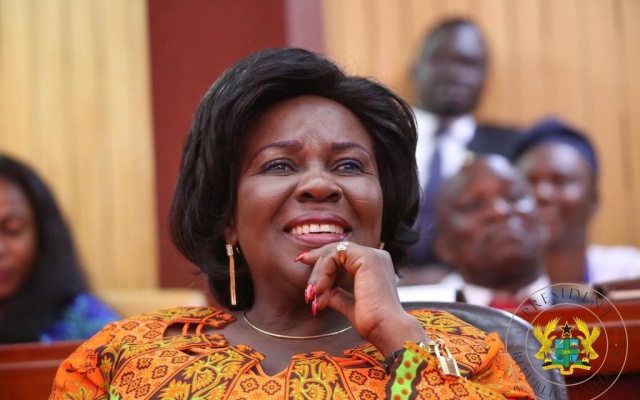Sanitation in over 250 schools of Ashanti Region is said to improve through Greater Kumasi Metropolitan Area Water and Sanitation project (GKMA).
The beneficiary schools under 8 Metropolitan and Municipal Education Directorates will have toilet facilities and improved water supply.
According to the UNICEF, no community in Ghana has achieved an open defecation-free status.
Children are often the leading culprits.
Lack of access to toilet facilities has been fingered. Operation and maintenance of schools, Water, Sanitation and Hygiene (WASH) has been a challenge.
The Ministry of Sanitation and Water Resources has therefore launched a project dubbed, Greater Kumasi Metropolitan Area Sanitation and Water Project (GKMA)
This follows the successful implementation of a similar project in Accra called the Greater Accra Metropolitan Area Water and Sanitation project (GAMA)
The ministry will institutionalize operations and maintenance of school sanitation facilities.
The project will focus on provision of gender and disability-friendly school toilets as well as water and hygiene facilities.
Kumasi Metropolitan Assembly, Asokwa, Oforikrom, Suame, Old Tafo.
Kwadaso, Asokore Mampong and Ejisu municipal Assemblies are beneficiary communities.
The two-day meeting by the Ministry of Sanitation and Water Resources in collaboration with the World Bank in Kumasi, sought to introduce stakeholders in the beneficiary areas to the project.
George Asiedu is the Project Coordinator at GAMA Water and Sanitation Project.
According to him, the vision of making the city clean is achievable.
“The Greater Kumasi Sanitation and Water Project seeks to improve sanitation in Accra and Greater Kumasi.
“We are targeting household and institutions,” he said.
The World Bank has approved a $155 million grant to support the Government of Ghana’s efforts to increase access to sanitation and water supply services.
This is meant to boost the capacity of government agencies for sustainable planning and management of natural resource and bring improved sanitation and water supply to over 3.6 million people living in and around the Greater Accra Metropolitan Area (GAMA).
The five-year program is designed to bring sanitation facilities and water supply to residents in the GAMA is targeted at low income communities.
Ing. Harold Esseku is a Senior Sanitation specialist at the World Bank.
“Under the first phase, 30,000 household were provided with toilet facilities. Two sewage systems have been put up in Ashaiman and Darkuman.
“We connected more than 10,000 households to water supply. Over 270 kilometers of water pipes have been laid for beneficiaries,” he enumerated.
Latest Stories
-
GPL 2024/25: Hearts seek redemption in Berekum Chelsea contest after Kotoko defeat
9 minutes -
Karpowership Ghana spreads Christmas cheer to children at Echoing Hills Village
15 minutes -
‘Together, we rebuild’ – UG NDC Lecturers Caucus calls for national unity in tackling Ghana’s challenges
22 minutes -
Mahama’s victory a triumph for transformative leadership in education – UG NDC Lecturers Caucus
27 minutes -
Full text: Electoral Commission update on outstanding results of 9 constituencies
28 minutes -
Our staff were under threat to make some declarations – Electoral Commission
32 minutes -
Ablekuma North and Okaikwei Central collation will not be accepted – EC
55 minutes -
MGL’s Doreen Avio and Hannah Odame earn master’s degrees from UPSA
1 hour -
ORAL is not a tool for witch-hunting – John Mahama
2 hours -
Audit the state of Ghana’s health sector – Kwame Asiedu urges Mahama
2 hours -
East Legon accident: Salifu Amoako’s son jailed 6 months
2 hours -
Brenda Antwi Donkor – the unsung lady behind the most iconic TV productions
2 hours -
MUSIGA mourns Naa Amanua of Wulomei fame
2 hours -
Audit Agenda 111 lands and funds – Kwame Asiedu urges Mahama
2 hours -
President Akufo-Addo commissioned mere buildings, not hospitals – Kwame Sarpong Asiedu
3 hours

